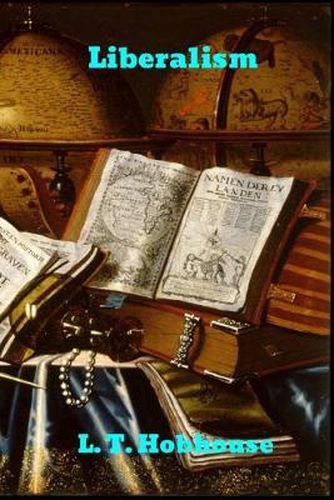Readings Newsletter
Become a Readings Member to make your shopping experience even easier.
Sign in or sign up for free!
You’re not far away from qualifying for FREE standard shipping within Australia
You’ve qualified for FREE standard shipping within Australia
The cart is loading…






This title is printed to order. This book may have been self-published. If so, we cannot guarantee the quality of the content. In the main most books will have gone through the editing process however some may not. We therefore suggest that you be aware of this before ordering this book. If in doubt check either the author or publisher’s details as we are unable to accept any returns unless they are faulty. Please contact us if you have any questions.
The modern State is the distinctive product of a unique civilization. But it is a product which is still in the making, and a part of the process is a struggle between new and old principles of social order. To understand the new, which is our main purpose, we must first cast a glance at the old. We must understand what the social structure was, which–mainly, as I shall show, under the inspiration of Liberal ideas–is slowly but surely giving place to the new fabric of the civic State. The older structure itself was by no means primitive. What is truly primitive is very hard to say. But one thing is pretty clear. At all times men have lived in societies, and ties of kinship and of simple neighbourhood underlie every form of social organization. In the simplest societies it seems probable that these ties–reinforced and extended, perhaps, by religious or other beliefs–are the only ones that seriously count. It is certain that of the warp of descent and the woof of intermarriage there is woven a tissue out of which small and rude but close and compact communities are formed. The modern State is the distinctive product of a unique civilization. But it is a product which is still in the making, and a part of the process is a struggle between new and old principles of social order. To understand the new, which is our main purpose, we must first cast a glance at the old. We must understand what the social structure was, which–mainly, as I shall show, under the inspiration of Liberal ideas–is slowly but surely giving place to the new fabric of the civic State. The older structure itself was by no means primitive. What is truly primitive is very hard to say. But one thing is pretty clear. At all times men have lived in societies, and ties of kinship and of simple neighbourhood underlie every form of social organization. In the simplest societies it seems probable that these ties–reinforced and extended, perhaps, by religious or other beliefs–are the only ones that seriously count. It is certain that of the warp of descent and the woof of intermarriage there is woven a tissue out of which small and rude but close and compact communities are formed.
$9.00 standard shipping within Australia
FREE standard shipping within Australia for orders over $100.00
Express & International shipping calculated at checkout
This title is printed to order. This book may have been self-published. If so, we cannot guarantee the quality of the content. In the main most books will have gone through the editing process however some may not. We therefore suggest that you be aware of this before ordering this book. If in doubt check either the author or publisher’s details as we are unable to accept any returns unless they are faulty. Please contact us if you have any questions.
The modern State is the distinctive product of a unique civilization. But it is a product which is still in the making, and a part of the process is a struggle between new and old principles of social order. To understand the new, which is our main purpose, we must first cast a glance at the old. We must understand what the social structure was, which–mainly, as I shall show, under the inspiration of Liberal ideas–is slowly but surely giving place to the new fabric of the civic State. The older structure itself was by no means primitive. What is truly primitive is very hard to say. But one thing is pretty clear. At all times men have lived in societies, and ties of kinship and of simple neighbourhood underlie every form of social organization. In the simplest societies it seems probable that these ties–reinforced and extended, perhaps, by religious or other beliefs–are the only ones that seriously count. It is certain that of the warp of descent and the woof of intermarriage there is woven a tissue out of which small and rude but close and compact communities are formed. The modern State is the distinctive product of a unique civilization. But it is a product which is still in the making, and a part of the process is a struggle between new and old principles of social order. To understand the new, which is our main purpose, we must first cast a glance at the old. We must understand what the social structure was, which–mainly, as I shall show, under the inspiration of Liberal ideas–is slowly but surely giving place to the new fabric of the civic State. The older structure itself was by no means primitive. What is truly primitive is very hard to say. But one thing is pretty clear. At all times men have lived in societies, and ties of kinship and of simple neighbourhood underlie every form of social organization. In the simplest societies it seems probable that these ties–reinforced and extended, perhaps, by religious or other beliefs–are the only ones that seriously count. It is certain that of the warp of descent and the woof of intermarriage there is woven a tissue out of which small and rude but close and compact communities are formed.